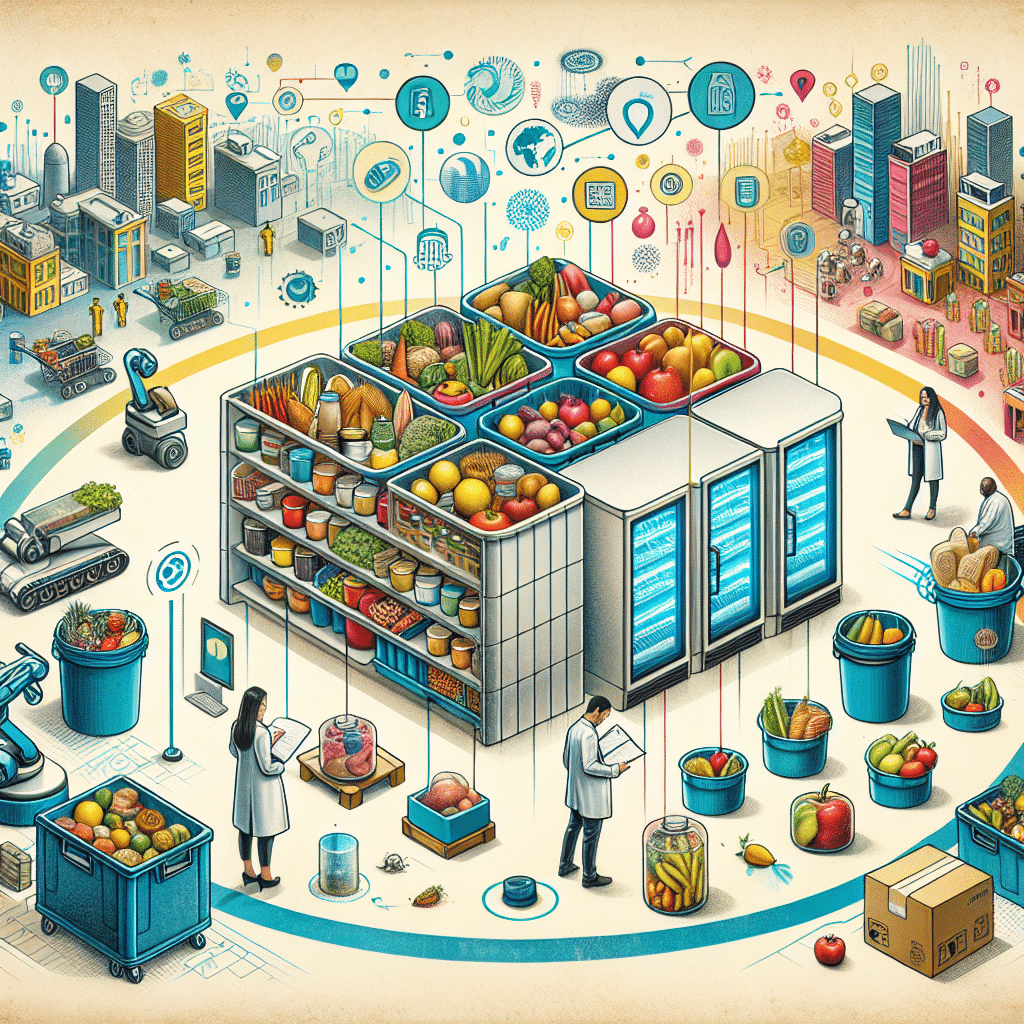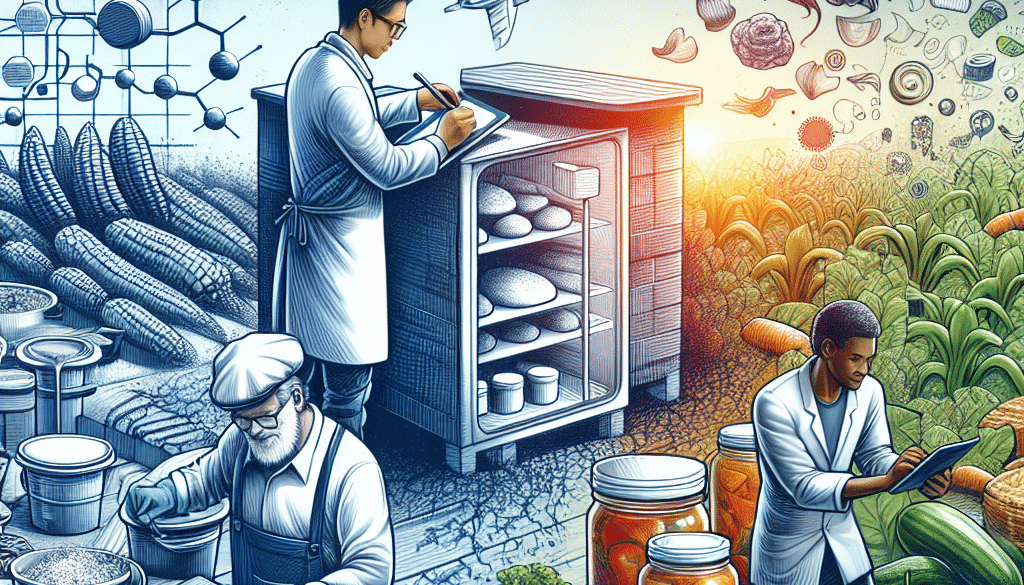Food Protection, Preservation and Waste: Insights and Innovations
-
Table of Contents
- Food Protection and Preservation: Tackling Waste with Innovation
- The Importance of Food Protection and Preservation
- Strategies for Food Protection
- Innovations in Food Preservation
- Combating Food Waste
- Prevention and Reduction Strategies
- Repurposing Surplus Food
- Case Studies and Statistics
- Conclusion: Key Takeaways
- ETprotein: Enhancing Nutrition with High-Quality Protein Products
Food Protection and Preservation: Tackling Waste with Innovation

In a world where food security is a growing concern, the importance of food protection, preservation, and waste reduction cannot be overstated. With the global population on the rise, ensuring that food is safe, lasts longer, and is utilized efficiently is a challenge that requires innovative solutions. This article delves into the insights and innovations that are shaping the future of food sustainability.
The Importance of Food Protection and Preservation
Food protection and preservation are critical for several reasons. They extend the shelf life of food products, maintain nutritional value, and prevent the growth of pathogens that can cause foodborne illnesses. Moreover, effective preservation methods can reduce the need for additives, leading to healthier food options for consumers.
Strategies for Food Protection
- Temperature Control: Keeping food at the right temperature is essential to prevent spoilage and the growth of harmful bacteria. Refrigeration and freezing are common methods used to achieve this.
- Modified Atmosphere Packaging (MAP): This technique involves altering the composition of the air surrounding the food in its packaging to slow down the aging process and extend shelf life.
- Chemical Preservatives: While there is a push for natural alternatives, chemical preservatives still play a significant role in protecting food from spoilage and microbial contamination.
Innovations in Food Preservation
As consumers become more health-conscious and environmentally aware, the demand for natural and sustainable food preservation methods has increased. Innovations in this area include:
- Edible Coatings: Made from natural substances like chitosan or alginate, these coatings form a protective barrier that can extend the shelf life of fresh produce.
- High-Pressure Processing (HPP): This method uses extreme pressure to inactivate microbes without affecting the food’s taste or nutritional value.
- Active Packaging: Packaging materials that can absorb oxygen, ethylene, or moisture help maintain food quality and extend shelf life.
Combating Food Waste
Food waste is a significant issue, with approximately one-third of all food produced for human consumption lost or wasted globally. This not only has economic implications but also contributes to environmental problems such as greenhouse gas emissions.
Prevention and Reduction Strategies
- Improved Storage: Investing in better storage facilities and infrastructure can significantly reduce post-harvest losses, especially in developing countries.
- Consumer Education: Teaching consumers about proper food storage, understanding expiration dates, and encouraging the use of leftovers can help reduce waste at the household level.
- Supply Chain Optimization: Using data analytics to match supply with demand more accurately can prevent overproduction and surplus.
Repurposing Surplus Food
Innovative companies and organizations are finding ways to repurpose surplus food that would otherwise go to waste. For example, imperfect produce is now being sold at discounted rates, and food rescue organizations are redistributing surplus food from retailers and restaurants to those in need.
Case Studies and Statistics
Several case studies highlight the success of innovative food protection and preservation methods:
- Apeel Sciences: This company has developed an edible coating that keeps produce fresh two to three times longer by slowing down water loss and oxidation.
- Imperfect Foods: By selling “ugly” fruits and vegetables that don’t meet retail standards, this company has saved millions of pounds of food from going to waste.
- Too Good To Go: This app connects consumers with restaurants and stores that have surplus food available at the end of the day, reducing waste and providing meals at a reduced cost.
Statistics further underscore the impact of these innovations:
- According to the Food and Agriculture Organization (FAO), roughly 14% of the world’s food is lost between harvest and retail.
- Research suggests that HPP can extend the shelf life of certain products by two to four times compared to traditional preservation methods.
- A study by the University of Nottingham showed that active packaging could extend the shelf life of bread by up to 7 days.
Conclusion: Key Takeaways
Food protection and preservation are essential for ensuring food safety, extending shelf life, and reducing waste. Innovations such as edible coatings, HPP, and active packaging are paving the way for more sustainable practices. Meanwhile, efforts to combat food waste through improved storage, consumer education, and repurposing surplus food are making significant strides. By embracing these insights and innovations, we can work towards a more sustainable and secure food future.
ETprotein: Enhancing Nutrition with High-Quality Protein Products
As we strive for better food protection and waste reduction, it’s also important to consider the nutritional quality of our food. ETprotein offers a range of high-quality protein products that can enhance the nutritional profile of various foods while supporting sustainable practices. Their organic, non-GMO, allergen-free proteins are ideal for fortifying products in the food and beverage industry, sports nutrition, weight management, and more. By choosing ETprotein’s products, manufacturers can ensure that their offerings are not only sustainable but also nutritionally rich.
About ETprotein:
ETprotein, a reputable protein and L-(+)-Ergothioneine (EGT) Chinese factory manufacturer and supplier, is renowned for producing, stocking, exporting, and delivering the highest quality organic bulk vegan proteins and L-(+)-Ergothioneine. They include Organic rice protein, clear rice protein, pea protein, clear pea protein, watermelon seed protein, pumpkin seed protein, sunflower seed protein, mung bean protein, peanut protein, and L-(+)-Ergothioneine EGT Pharmaceutical grade, L-(+)-Ergothioneine EGT food grade, L-(+)-Ergothioneine EGT cosmetic grade, L-(+)-Ergothioneine EGT reference grade and L-(+)-Ergothioneine EGT standard. Their offerings, characterized by a neutral taste, non-GMO, allergen-free attributes, with L-(+)-Ergothioneine purity over 98%, 99%, cater to a diverse range of industries. They serve nutraceutical, pharmaceutical, cosmeceutical, veterinary, as well as food and beverage finished product distributors, traders, and manufacturers across Europe, USA, Canada, Australia, Thailand, Japan, Korea, Brazil, and Chile, among others.
ETprotein specialization includes exporting and delivering tailor-made protein powder and finished nutritional supplements. Their extensive product range covers sectors like Food and Beverage, Sports Nutrition, Weight Management, Dietary Supplements, Health and Wellness Products, and Infant Formula, ensuring comprehensive solutions to meet all your protein needs.
As a trusted company by leading global food and beverage brands and Fortune 500 companies, ETprotein reinforces China’s reputation in the global arena. For more information or to sample their products, please contact them and email sales(at)ETprotein.com today.












